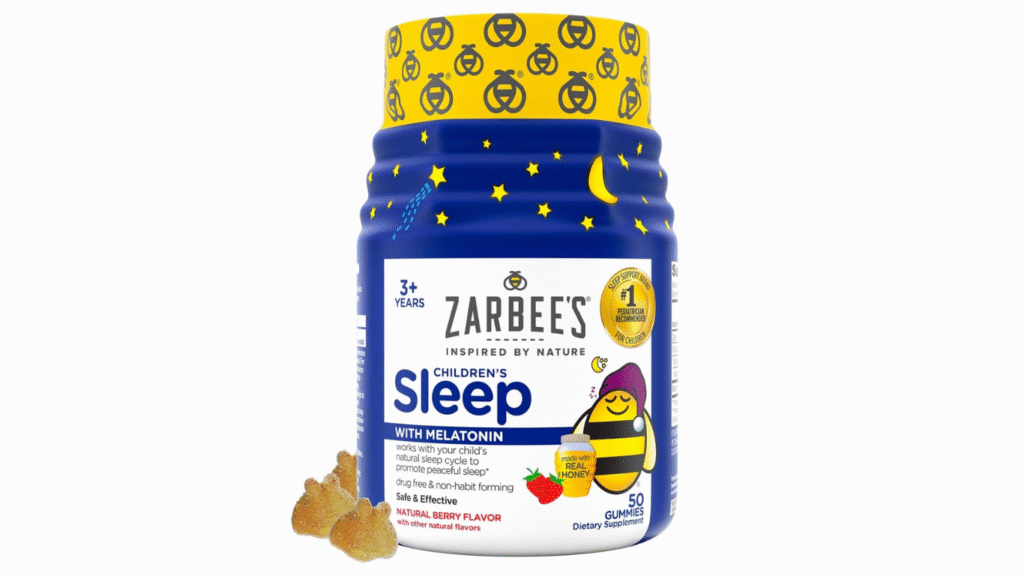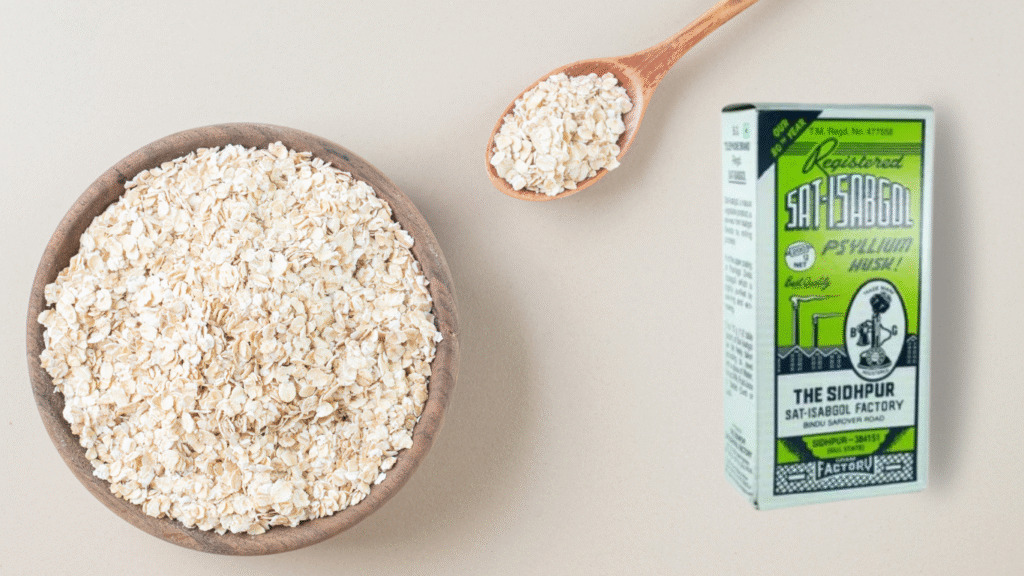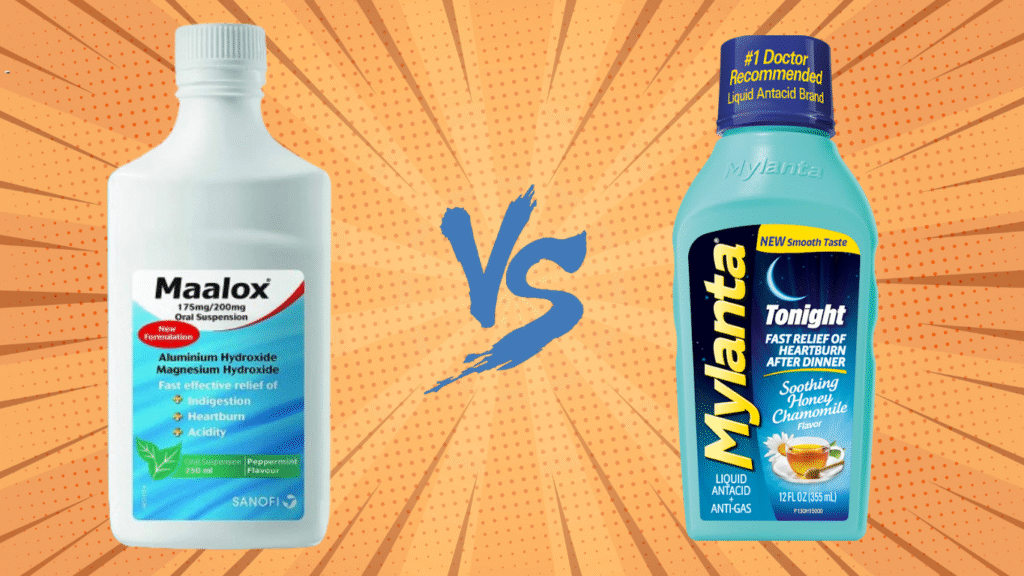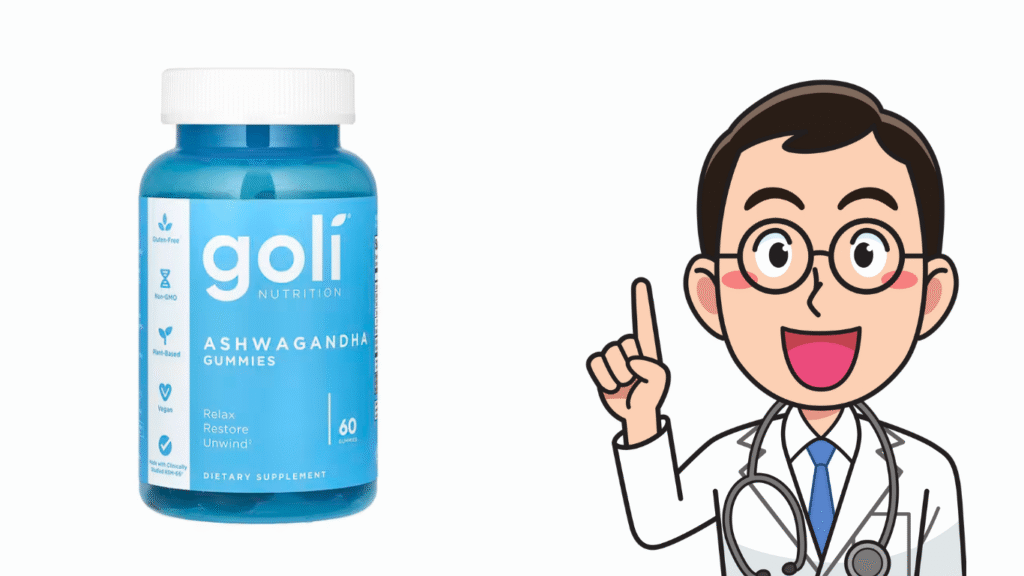Problems in sleep in children is common. Whether it’s bedtime resistance, difficulty falling asleep, or frequent nighttime awakenings, many parents are looking for solutions to these problems. One solution that’s gaining popularity? Melatonin supplements. But is melatonin safe for children? What is the proper dosage? And are there other options available?
This guide provides everything parents need to know about melatonin for children—from its benefits and risks to when it’s necessary to seek medical advice.
What is Melatonin?
Melatonin is a natural produced by the body by pineal gland which is located in the brain. It is hormone which is helpful in sleep, also known as the circadian rhythm. When daylight is scarce, melatonin levels increase, signaling the body to rest.
Melatonin supplements are either synthetic or derived from plants and are commonly available as gummies, chewables, and liquids.
Why Do Some Kids Struggle with Sleep?
Children can have sleep problems for a variety of reasons, including:
- Screen use before bedtime
- Feeling anxious or overstimulated
- Inconsistent routines or poor sleep hygiene
- Medical or behavioral problems, such as ADHD or autism
Sleep problems are even more common—and often more severe—in children with autism spectrum disorder (ASD) or attention deficit hyperactivity disorder (ADHD).
Is Melatonin Safe for Kids?
Melatonin is generally considered safe for short-term use in children when given under medical guidance. However, it is important to understand:
- It is classified as a dietary supplement rather than a controlled drug.
- The long-term effects of melatonin in children are still under investigation.
- By Pediatrician it is recommended when it is absolutely necessary
According to the American Academy of Pediatrics (AAP), melatonin can serve as a beneficial short-term solution while developing a better sleep routine.
Melatonin Dosage Guidelines for Children
Here are general dosage guidelines (always confirm with a pediatrician):
- Toddlers (2–4 years): 0.5 mg
- Children (5–8 years): 1–2 mg
- Tweens (9–12 years): 2–3 mg
- Teens: 3–5 mg, only under supervision
When to take: 30–60 minutes before bedtime
Important: Do not take more than 6 mg without doctor’s advice, and do not use it daily for a long period of time.
Benefits of Melatonin for Kids
When used correctly, melatonin may:
- help children fall asleep faster
- increase overall sleep duration
- be especially beneficial for children with: autism, ADHD, delayed sleep phase syndrome
However, it won’t solve basic behavioral or routine-related sleep problems.
Potential Side Effects and Risks
Melatonin is a natural substance, but it can have some side effects:
- Morning drowsiness or drowsiness
- Strange dreams or nightmares
- Headache
- Mood swings or irritability
Rare problems (still being investigated):
- Hormonal disturbances related to puberty
- Effects on long-term hormonal development
Keep a close eye on your child and stop using it if any negative effects are noticed.
Natural Alternatives to Melatonin
Before reaching for melatonin, try improving sleep habits:
Good Sleep Hygiene
- Set a regular bedtime and wake-up time
- Turn off screens at least an hour before bedtime
- Create a dark, quiet, and cool environment in your room
Dietary Support
Offer foods rich in tryptophan, magnesium, or melatonin
- Bananas, oats, dairy, cherries, almonds
Relaxation Techniques
- Guided meditations or breathing exercise
- Bedtime stories or soothing music
- Take a warm bath before bed
When to Talk to a Pediatrician
Consult a doctor if:
- Your child regularly takes longer than 30-45 minutes to fall asleep.
- Wakes up several times a night.
- Exhibits behavioral problems related to sleep deprivation.
- You intend to give melatonin more than a few nights a week.
A pediatrician may suggest a sleep test or refer you to a pediatric neurologist.
Choosing the Right Melatonin Supplement for Kids
When choosing a product:
- Choose gummies, chewables, or liquids for younger children.
- Choose brands that have been lab-tested by a third party (like NSF or USP).
- Stay away from unnecessary additives (like sugar and artificial colors).
Trusted Brands:
- Zarbee’s Natural (USA)
- Olly Kids Sleep Gummies (USA)
Conclusion
Melatonin can serve as a useful short-term aid for children struggling with sleep problems—but it’s not a miracle solution. It’s important to start with healthy sleep habits and use melatonin only after discussing it with a pediatrician.
Used properly, melatonin can help your child (and you!) get the much-needed rest you both deserve.







